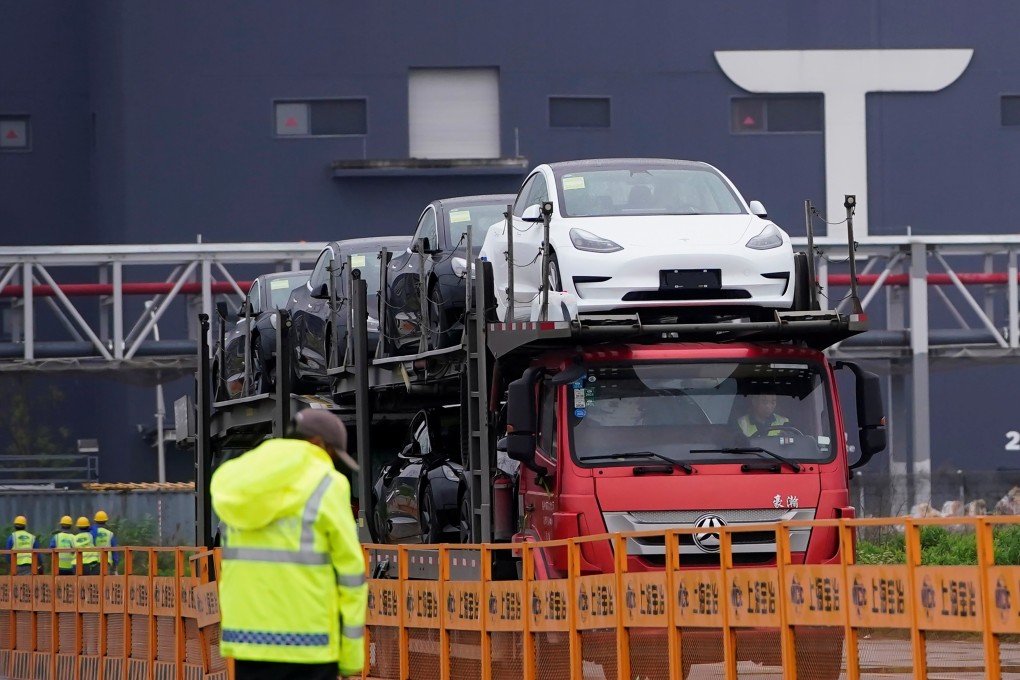Advertisement
Shanghai mayor wants more chip production facilities to support new-energy vehicle growth
- Mayor’s statement conveys a message that huge investments will be made in the coming years to develop and produce chips for use in cars, says analyst
- A total of 550,000 NEVs – which include pure electric, plug-in hybrid and fuel-cell cars – were built in Shanghai last year, up 170 per cent from 2020
Reading Time:2 minutes
Why you can trust SCMP

Shanghai, home to Tesla’s largest production base, wants to expand manufacturing capacity for automotive chips to support the rapid growth of smart electric vehicles (EVs).
The mayor of Shanghai, Gong Zheng, said after the annual session of the city’s legislature on Sunday that the local government is pinning hopes on the new-energy vehicle (NEV) sector to drive its economy, and that “allocating resources for increasing the capacity of automotive chips” would help that goal.
“We hope the issue of the chip shortage [in the automotive industry] can be solved soon,” Gong said.
Advertisement
He did not elaborate on how Shanghai would produce more chips, which require wafer fabrication plants that typically cost billions of dollars in investment and take years to construct.
China’s largest chip maker, Semiconductor Manufacturing International Corp, is based in Shanghai, but is building new wafer fab capacity in Beijing and Guangzhou, capital of southern Guangdong province.
Advertisement
Advertisement
Select Voice
Select Speed
1.00x